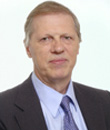Should the United States Break Up the Big Banks? Argyros School Professor Joins the Discussion at U.C. Berkeley
November 19, 2015

This past Wednesday, November 18, 2015, Clas Wihlborg, Ph.D., Professor at the Argyros School, participated in ”Debate: The United States Should Break Up the Big Banks,” at the
University of Berkeley, California
, which focused on the importance and probable risks of the American economy’s largest financial institutions.
During the debate, Professor Wihlborg took a negative stance on whether or not “The United States should break up the big banks.” He joined other experts to talk about why he thought it was necessary.
“Any rule for breaking up banks is bound to fail in achieving a stable financial system,” said Professor Wihlborg. “We need to understand distorted incentives for banks to become big and complex and address them.”
Following the 2008 financial crisis, numerous financial experts have attempted to determine ways to prevent such an economic downfall from happening again.
Many claim that the existence of banks that are “too big to fail” are an impending threat to the stability of the financial structure, and that the best resolution is to break them up into their composite divisions.
Others, however, argued that the blame on big banks is misdirected and challenge both the effectiveness and feasibility of this proposed solution. Participants in the debate discussed the merits of breaking up the biggest banks as a means of protecting the economy from future crisis.
Experts on the panel included:
Affirmative
- Raymond Hawkins – Lecturer of Economics at the University of California, Berkeley
- Jan Kregel – Senior Scholar at the Levy Institute
- Student Speaker – Daniel Saedi, Executive Officer, Undergraduate Finance Association at the University of California, Berkeley
Negative
- Clas Wihlborg - Professor, Fletcher Jones Chair in International Business Research at Chapman University
- Thomas Lee – Author and Business Columnist for the San Francisco Chronicle
- Student Speaker – Brandon Flannery, President of Capital Investments at the University of California, Berkeley
Professor Wihlborg is knows as an expert in the field of financial systems and is currently working on a paper on different approaches to the “too big and too complex to fail” problem in banking. The main question addressed is whether there are ways to impose stronger market discipline on large banks without excessively burdensome regulation.
The executive compensation issue Professor Wihlborg is working on is whether uncertainty about the macroeconomic environment distorts managers’ incentives to enhance competitiveness.
In the area of international finance, Professor Wihlborg is examining the European Monetary Union and its impact on countries and firms in different countries. Exchange rate risk management is one aspect of how corporations can deal with exchange rate and macroeconomic uncertainty.
Clas Wihlborg, Ph.D., Professor, Fletcher Jones Chair in International Business at the Argyros School, received in Ph.D. from Princeton University. Professor Wihlborg has held faculty positions in Finance and International Business at New York University, and in Finance and Business Economics at the University of Southern California.
At Göteborg University in Sweden he was Head of the Financial Economics programs before moving in 2000 to the Copenhagen Business School (CBS) in Denmark, where he was a Professor of Finance and Director for the Center for Law, Economics and Financial Institutions (LEFIC).
He is a member of the European Shadow Financial Regulatory Committee and the Royal Swedish Academy of Engineering Sciences (IVA). His research and teaching have focused on International Finance, International Financial Management, Law and Economics, and Financial Institutions. In these areas he has published numerous journal articles and books, most recently as coauthor of
Corporate Performance and the Exposure to Macroeconomic Fluctuations.
